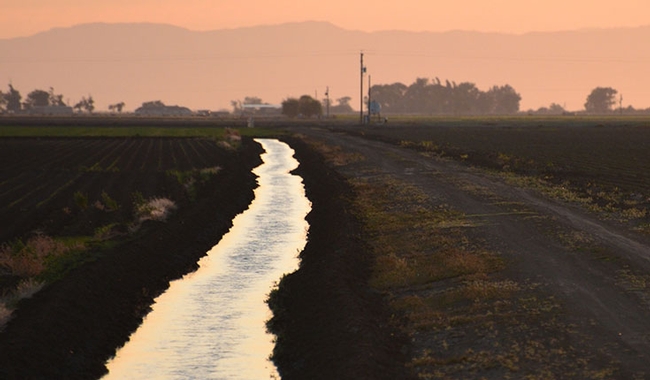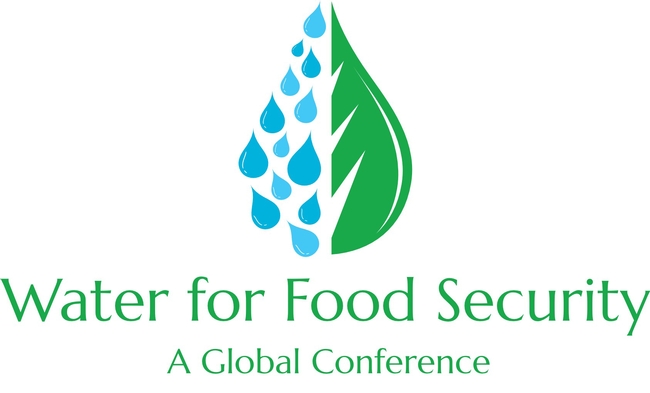Posts Tagged: conference
UC California Naturalist Conference, Oct. 7–9, highlights environmental challenges, diverse voices
Climate change, extreme drought, intense wildfires and the COVID-19 pandemic can all be linked to humanity's troubled relationship with the natural world.
For more than a decade, healing and deepening connections between people and the environment have been pillars of the UC California Naturalist Program. Partnering with over 80 organizations across the state, the program – a part of University of California Agriculture and Natural Resources – has trained over 6,500 participants and certified more than 5,350 volunteers who engage fellow community members in advancing environmental stewardship and climate resilience.
To celebrate its 10th anniversary, the program is convening a statewide conference Oct. 7–9 along the north shore of Lake Tahoe, under the theme of “Celebrating Community, Nature and Resilience for a Just Future.” Keynote speakers are José González, founder of Latino Outdoors; Rhiana Jones, director of the Washoe Environmental Protection Department; and Obi Kaufmann, artist and eco-philosopher. Members of the public are invited to register for the conference.
UC Naturalists and Climate Stewards (the latter program was established in 2020), as well as instructors for both certification courses, will gather with community members to reflect on their work, share best practices and chart a path toward a more sustainable and equitable future.
“We're striving to create a welcoming and safe space where we can challenge our own long-standing assumptions and perspectives and hear from a wide range of voices on crucial topics, including the latest on climate change and resilience; participatory science; and equity, diversity and inclusion in the conservation space,” said Gregory Ira, director of the UC California Naturalist Program.
Ira also highlighted the conference's equity-based registration fee structure, aimed at minimizing cost as a barrier to participation.
“We encourage anyone with an interest in learning more about California's unique ecosystems – and becoming a better steward of the environment – to join us for the weekend,” he said. “We truly value the perspectives and experiences you can bring to our conference.”
The conference agenda will feature engaging presentations, hands-on workshops and field trips to the area's natural wonders. Presenters include:
- Herman Fillmore, culture/language resources director, Washoe Tribe of Nevada and California
- Don Hankins, Professor, Geography and Planning, Chico State University
- Patricia Maloney, Forest and Conservation Biologist, Tahoe Environmental Research Center, UC Davis
- Adina Merenlender, co-founder of the California Naturalist Program and UC Cooperative Extension professor in conservation science
- Jennifer Norris, deputy secretary for biodiversity and habitat, California Natural Resources Agency
- Ken-ichi Ueda, co-founder and co-director of iNaturalist, UC Berkeley School of Information
For more information and to register, visit the conference website at https://ucanr.edu/sites/2022CalNatCon/.
International and California water conferences shine new light on lingering drought
The gauge reads 105 degrees in California's state capital as this article is being drafted. The four-year drought has baked itself into the landscape, with dead lawns crunching under feet and trees wilting under the heat, and has so far stolen a year's worth of precipitation. Deprived of moisture, the state has lost to wildfires three times the acreage of an average year. The once green valleys are now murky fishbowls of haze.
The total cost to the state, according to a new report released Tuesday by the Center for Watershed Sciences (CWS) at the University of California, Davis, is now $2.74 billion and 21,000 jobs.
Some see this as the new normal and new evidence ties it to climate change.
But despite the profound impact on the California agricultural economy, the state is actually doing well. And it's becoming the world's test kitchen for best practices in adapting agriculture to changing water supplies.
A legacy of progressive environmental regulations
“Despite the drought, we have a remarkably robust agricultural system,” says Jay Lund, director of CWS. “If you go back millennia and look at droughts, with a 30 percent loss of water you'd have a 30 percent loss of food production and you'd have 30 percent of the people starving.”
That hasn't happened today, he says, because California agriculture is more diversified than ever and its economy is connected to a world food market that advances despite the drought.
The many tools that UC Agriculture and Natural Resources (UC ANR) and others are deploying to help Californians better adapt today are also being translated into immediate lessons for the developing world.
Stockholm comes to Davis
Starting Sunday, representatives from more than 200 organizations will meet in Stockholm, Sweden, for the World Water Week mega conference. Under the theme Water for Development, they will refine the United Nations' broad Sustainable Development Goals to address the one billion people who would still be without safe drinking water and basic sanitation.
Many partners of UC ANR and the UC Davis World Food Center will be leading some of the numerous discussions, including: CGIAR, the World Bank, the Bill & Melinda Gates Foundation and the UN Food and Agriculture Organization.
A separate conference at UC Davis in October will then bring the focus to California and water for food. This global event, called Water Policy for Food Security, will draw on lessons from World Water Week through shared speakers like Chris Brown, the general manager of responsibility and sustainability at Olam International, and Claudia Ringler, a senior researcher at the International Food Policy Research Institute, which is co-hosting the event.
Presentations on the Case of California will open two days of panel discussions, ranging from how climate change will impact the cost of water in different regions of the world to how groundwater aquifers can be recharged and how new policies can bolster water markets.
The goal is to seize the momentum now building for an international effort towards #WaterSecurity. By drawing development investors, leading scientists, committed policy makers and global industry partners into one room within the world's number one ag school, the event will set a course of action in sustainably securing water for food and for people across the planet.
Feeding billions in the face of climate change
As drought dries the landscape and rising global temperatures make for decreasing crop yields, farmers are faced with the question of how to feed billions of people in a way that both reduces global greenhouse gas emissions and adapts to the realities of climate change.
Scientists and policymakers from around the world will gather today through Friday, March 20-22, at the University of California, Davis, to grapple with the threats of climate change for global agriculture and recommend science-based actions to slow its effects while meeting the world's need for food, livelihood and sustainability.
The Climate-Smart Agriculture Global Science Conference, planned in coordination with the World Bank, builds on a 2011 international meeting on this theme in the Netherlands.
"Climate change, which brings severe weather events and more subtle but equally menacing temperature changes, presents unprecedented challenges to the global community," said UC Davis Chancellor Linda P.B. Katehi.
"In California, where we rely heavily on snowmelt for irrigation to grow half of our nation's fruit and vegetables, we are acutely aware that scientists and policymakers must join forces to lessen the potential effects of climate change," she said.
Katehi will open the conference on Wednesday, March 20, along with Thomas Vilsack, secretary of the U.S. Department of Agriculture (via video). The public is invited to attend the opening day’s program (8:45 a.m.-12:30 p.m), free of charge; and the closing day’s afternoon program (noon-3:45 p.m.), also free of charge. These will be held in Jackson Hall of the Mondavi Center for the Performing Arts. (Lunches not included.)
Catherine Woteki, USDA undersecretary, will speak Thursday evening, March 21.
Other speakers will include: Ben Santer, climate researcher at Lawrence Livermore National Laboratory and a member of the National Academy of Sciences; Joseph Alcamo, chief scientist for the United Nations Environmental Program; and Patrick Caron, general director for research and strategy of the French Agricultural Research Center for International Development. Also speaking will be outstanding scientists from dozens of universities and research institutes from around the world.
Conference topics will focus on the implications of cutting-edge agricultural, ecological and environmental research for improved design of policies and actions affecting agricultural management and development; identifying farm and food-system issues, determining research gaps; highlighting emerging research initiatives; and developing transformative policies and institutions.
The conference will conclude with participants developing and endorsing a declaration regarding the key research and policy messages that result from conference presentations and discussions. This declaration is expected to point toward science-based policies and actions for global agriculture that will mitigate climate change and encourage adaptation to maintain food security, livelihoods and biodiversity.






